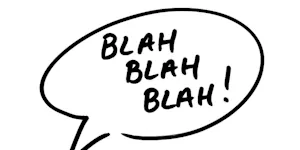What Makes This Word Tick
"Threnody" is a word that carries the weight of sorrow and remembrance. It refers to a song, speech, or poem of lamentation, particularly for the dead. If you conjure up images of a somber, elegant piece of music or an emotional eulogy, you're capturing the essence of this poignant term.
If Threnody Were a Person…
Threnody would be the introspective friend who quietly listens, with a sense of elegance and grace. This person might wear darker, muted tones, always supportive but occasionally lost in their own thoughts. They're the ones who find profound beauty in melancholy.
How This Word Has Changed Over Time
Originating from the Greek "threnoidia," composed of "threnos" (a lament) and the suffix "-oid," "threnody" has remained remarkably stable in its meaning. Throughout its existence, it has maintained its association with mourning, though its musical connotations have become more pronounced.
Old Sayings and Proverbs That Use Threnody
There aren't many classic proverbs with "threnody," but you might think of it aligning with phrases about mourning, like "shedding tears through a forlorn tune" or "singing the final farewell."
Surprising Facts About Threnody
Threnody is often associated with high art, appearing not only in literature but also in compositions — such as the renowned piece "Threnody to the Victims of Hiroshima" by Krzysztof Penderecki. Its very nature gives it a solemn grandeur, yet it remains a lesser-known term outside academic and artistic circles.
Out and About With This Word
Threnody tends to linger in academic settings and cultural spaces, like music halls or poetry readings. You might encounter it while perusing a museum exhibition dedicated to memorial art.
Pop Culture Moments Where Threnody Was Used
While not mainstream, "threnody" has appeared in modern culture, often explored in film soundtracks or episodes of TV shows dealing with intense scenes of loss and remembrance. It's the subtle touch that heightens the gravitas of the moment.
The Word in Literature
In literature, "threnody" resides comfortably in poetry and prose that deal with themes of mourning and loss. It's the sort of word that might find a home in the works of T.S. Eliot or in a somber chapter by Virginia Woolf.
Moments in History with Threnody
Consider the historic moments of collective mourning, such as memorials for fallen soldiers or national days of remembrance. Threnody would be the embodiment of the songs and speeches delivered during these poignant times.
This Word Around the World
In different cultures, threnodies take various forms, from the keening vocal laments of Ireland to Japan's lyrical "uta" dedicated to the deceased. Each culture adapts its own musical and poetic language to the heartache of loss.
Where Does It Come From?
"Threnody" is rooted in ancient Greek, where it was formed from the components meaning "lament" and "song." Despite its age, the word has retained its somber and artistic resonance throughout history.
How People Misuse This Word
Occasionally, people might use "threnody" simply to imply sadness in music, overlooking its specific association with lamenting death.
Words It’s Often Confused With
Elegy: Both are lamentations, but an elegy is a poem specifically, often with a more formal structure.
Dirge: Another form of a lament, but typically more solemn and stately, often associated with funerals.
Requiem: Generally pertains to a particular type of religious or musical service for the dead.
Additional Synonyms and Antonyms
Synonyms: Lamentation, dirge, requiem, elegy
Antonyms: Celebration, jubilation, rejoicing
Want to Try It Out in a Sentence?
The composer crafted a haunting threnody that captured the sorrowful silence left in the wake of the tragic event.
















